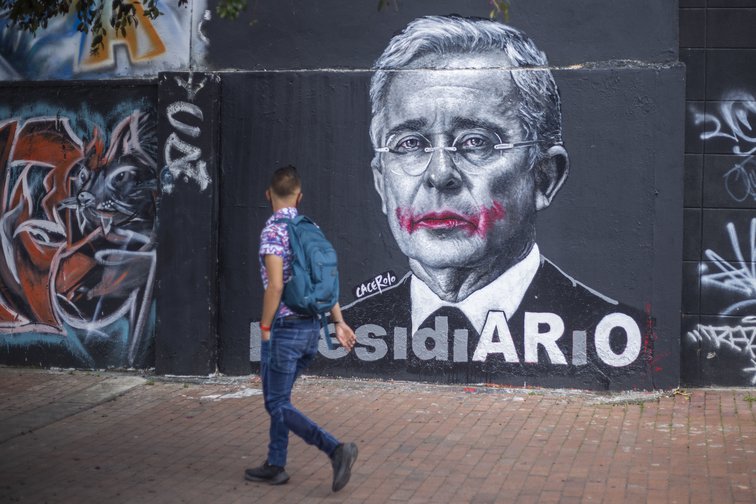
Alvaro Uribe, the Colombian ex-president, faces judicial worries in the US
Colombia and the United States have accumulated an encyclopaedic compendium which links Uribe to criminal organizations. This truth will be recognised despite the actions of all the political powers which seek to prevent it.

The historical role of dictators and caudillos allied to the United States, in our continent and in the world, has been to serve as operators of its particular political strategic objectives, but it has also served for these self-same dictators and caudillos to find guaranteed impunity for the crimes against humanity, which they have perpetrated in their respective countries.
Together with the economist Felipe Tascón, in 2015, we wrote a book about Uribe’s relationship with the transnational extreme right. Our investigation demonstrated that he (Uribe) had efficiently fulfilled the role of placeholder for US politics in Latin America at the start of the XXI century.
The book analysed his close bonds with a sector of the Republican Party in the state of Florida; his efforts were to localise the worst policies of the White House with respect to human rights, such as “the war against terrorism” resulting in his “democratic security”, the “war against drug-trafficking” which was applied via Plan Colombia; the models which gave rise to “false positives’ (in effect: extrajudicial executions) which were exported to other Latin American countries; the illegal spying and the promotion of a civic-military model which resulted in fertile ground for the growth of paramilitarism and para-politics.
Those policies also incentivized the persecution of social and indigenous movements (Chile), the militarization of society (Mexico), they auspiced “soft coups” against progressive governments (Honduras and Paraguay), as well as obstructing the integration of the region and promoting disadvantageous free trade within Latin American economies. This is how Chile became, in its own time, the laboratory for the new wars required by the transnational extreme right, in order to succeed in the Conservative restauration, which would interrupt the progressive cycle in the region [1].
We’ve got a newsletter for everyone
Whatever you’re interested in, there’s a free openDemocracy newsletter for you.
Alvaro Uribe has used his alliances with a particular sector of Republican politicians in order to motivate US judicial and migratory authorities to investigate me on false pretences.
Worried as he is by the investigations against him in progress in Colombia, concerning the crimes of the bribing of witnesses and procedural fraud, which will open the Pandora’s Box of his close relationships with paramilitaries and narcotraffickers, Alvaro Uribe has used his alliances with a particular sector of Republican politicians in order to motivate US judicial and migratory authorities to investigate me on false pretences. He has also employed a public relations company DCI Group, with the aim of developing a smear campaign against myself and against the magistrates of the Special Instructional Division of the Colombian Supreme Court of Justice [2].
These fears are not without basis. Since 2002, as well as the frequent questions over massive violations of human rights perpetrated under his presidency, declassified documents have periodically appeared in the US from the archives of the intelligence agencies and governmental institutions, which delineate Alvaro Uribe’s relations with the Medellin Cartel capos, as well as with people from the paramilitary groups in our country and with para-politicians.
Twenty-three of these declassified documents can be read on the National Security Archive organization website. Here one finds documents from US intelligence agencies which tell of how in the 1990s, Alvaro Uribe Velez was included in the official list of top world narcos and their allies “dedicated to collaboration with the Medellin Cartel [3].
The then senator for Antioquia appears at Number 82 on the list: “82. Álvaro Uribe Vélez, a Colombian politician and senator dedicated to collaboration with the Medellin cartel at high government levels”. The document further confirms that Uribe was a personal friend to Pablo Escobar Gaviria [4].
In cables originating from the US Embassy in Bogota, those types of connections were described in detail to also occur with paramilitaries. An extensive analysis and report of those governmental documents appeared in May 2018 in the New York Times newspaper: “The cables, which were made available to The New York Times, describe meetings from 1992 to 1995 between US functionaries and Uribe, when Uribe was a promising politician, as well as information gathered by Colombian functionaries who also knew him. Members of the (Colombian) Liberal Party, political organization in which Uribe also actively participated, retell of his links to the main drug cartels, including the gang of narco Pablo Escobar”[5].
Similarly, information in WikiLeaks cables shows the evaluation which the authorities and the US embassy were making about the links of politicians around Uribe with paramilitaries. One of those cables mentions that Alvaro Uribe’s cousin, the then senator Mario Uribe, had gone to the (US) Embassy to beg not to lose his US visa, under the growing malaise arising from the parapolitica investigations, which directly implicated him as well as many other of his colleagues in the Primero Colombia political party. As is already known, the cousin of the then President of Colombia - Mario Uribe - has ultimately been judged and condemned for his membership of the political wing of paramilitarism [6].
Via the arrival of 14 ex-paramilitary chieftains to US jails, extradited in 2008, Uribe’s government needs to find new explanations.
Via the arrival of 14 ex-paramilitary chieftains to US jails, extradited in 2008, Uribe’s government, which had sought to liberate itself from their revealing confessions to the public prosecutors and magistrates of the Justicia y Paz system (the 2005 paramilitary demobilisation judicial system), needed now to find new explanations. For example: in April 2019, at a New York tribunal, the lawyer for Diego Fernando Murillo Bejarano, alias ‘Don Berna’, read out a declaration in the name of the defendant in which he recognised having supported Uribe’s 2002 presidential election with “large sums of money” because he believed that “peace was important” [7].
The judicial outcome for the extradited paramilitaries has been the subject of permanent controversy and it has generated all sorts of tensions. The most recent ones have been motivated by the obvious reticence of President Ivan Duque to efficiently carry out the transactions necessary to permit the return of the former paramilitary chief, Salvatore Mancuso. Mancuso has sustained on multiple occasions that he is willing to testify in front of the Colombian Judicial authorities in order to corroborate and amplify his declarations, originally made to the Justicia y Paz system, about paramilitarism in the Córdoba regions and his visits to the El Uberrimo (Uribe’s) hacienda.
There are two other existing episodes, linked to the extradition, which have directly involved Uribe. The first one is that of Dolly Cifuentes Villa, long-term partner of his brother Jaime Alberto Uribe Vélez, alias ‘El Pecoso’, who declared himself guilty of five charges of narco-trafficking levied on him by a South Florida federal court.
His extradition was approved by the Supreme Court of Justice on the 8 February 2012 [8]. Ms Cifuentes was “singled out to be a direct associate of the most wanted narco in the world, the Mexican Joaquin ‘El Chapo” Guzmán, head of Sinaloa Cartel”[9]. Additionally, in June 2012, news emerged that a tribunal in the US was asking for the extradition of general Mauricio Alfonso Santoyo Velasco, ex-security chief of the Colombian President’s residence, Casa de Nariño, during Uribe’s presidency.
He was wanted because of alliances with narcotrafficking organizations in Medellín, alliances which were employed to furnish them with information that would protect them from the authorities. He was also accused of supporting the Autodefensas Unidas de Colombia (AUC - ruthless narco-paramilitary squads in Colombia) with drug-trafficking. The then president of the Republic, meanwhile, in a honorary event for Santoyo, praised Santoyo as “the protector for all hours”[10].
In the same vein, with respect to issues linked to paramilitarism, the US public got to know the judicial process against the multinational Chiquita Brands, which had received sea-port concessionary zones. The latter, in effect, served for the import of illegal arms destined for paramilitaries in the North of Colombia, and to finance “Convivir” organizations, which were merely a façade for those same (paramilitary) groups.
The Uribismo gambles Colombia’s fortunes in exchange for their caudillo’s impunity.
Uribe, at that time governor of Antioquia, was responsible for legalizing all the above. In fact, with regard to this process and its consequences, the Colombian ex-ambassador in Washington, Gabriel Silva Luján, reminisced in an op-ed that: “Obama and Biden were the ones who on request by Santos, gave presidential immunity to Alvaro Uribe, despite the opposition of the Department of State, when he (Uribe) stood the risk of being hauled through the courts because of human rights violations [11].
President Ivan Duque’s government has decided to construct itself as part of ex-senator Uribe’s defence team, both in Colombia and in the United States. This defence stance seeks to guarantee that nothing which occurs over there can perturb his judicial situation: he likely has solicited that President Donald Trump, vice-president Mike Pence and some members of congress, such as the La Florida State Republican senator, Mario Díaz-Balart, intervene and pressurise Colombian justice. Along with this desperate strategy, accusations have emerged that functionaries and figures of ex-senator’s (Uribe’s) party have been interfering in districts of La Florida State in favour of the Trump campaign and local (Republican) candidates to Congress.
It is in this way, that Uribismo, gambles Colombia’s fortunes in exchange for their caudillo’s impunity. In this way they are mortgaging our politics to the fortunes of a president whose re-election is uncertain and perpetrating illegal practices of foreign political intervention.
Whatever the outcome of this is, the truth is that Colombia and the United States have accumulated an encyclopaedic compendium which, beyond doubt, links Uribe to criminal organizations. This truth will be recognised despite the actions of all the political powers which seek to prevent it.
***
[1] Iván Cepeda y Felipe Tascón, Uribe y la derecha transnacional, Bogotá, Ediciones B, 2015.
[2] The content of this site is distributed by DCI Group on behalf of Álvaro Uribe Vélez. Recuperado de:
https://www.freeuribe.com/about/.
[3] Inteligencia report from 1991 elaborated by the US Defense Intelligence Agency (DIA) in Colombia.
[4] National Security Archive, desclassified documents related with expresident and exsenator Álvaro Uribe Vélez, https://nsarchive.gwu.edu/briefing-book/colombia/2020-08-31/friends-el-viejo-declassified-records-detail-suspected-paramilitary-narco-ties-former-colombian.
[5] Nicholas Casey, “Cables diplomáticos de Estados Unidos sugieren nexos de Álvaro Uribe con narcotraficantes”, The New York Times, 25 de mayo de 2018.
[6] Caracol Radio, “Para no perder la visa tres jefes políticos pidieron aval de EEUU a sus listas al Congreso”, 20 de febrero de 2011.
[7] Iván Cepeda Castro, “Large sums of money”, El Espectador, 24 de abril de 2009, recuperado de: <https://www.elespectador.com/opinion/large-sums-money-columna-137747/>.
[8] Dolly Cifuentes is the sister of narco Francisco Cifuentes Villa – pilot to Pablo Escobar- and Jorge Milton Cifuentes Villa, today imprisoned in the US.
[9] Gonzalo Guillén, “Cuñada de Álvaro Uribe extraditada a EE.UU. fue operaria del ‘Chapo’ Guzmán”, 30 de enero de 2014, accessed from: https://www.las2orillas.co/cunada-de-alvaro-uribe-extraditada-ee-uu-fue-operaria-del-chapo-guzman/.
[10] Iván Cepeda y Alirio Uribe, “Protector de todas las horas”, in: Por las sendas de El Ubérrimo, Ediciones B, Bogotá, 2014, pp. 121-150.
[11] Gabriel Silva Luján, “Sacrilegio”, El Tiempo, 27 de septiembre de 2020.
Read more
Get our weekly email
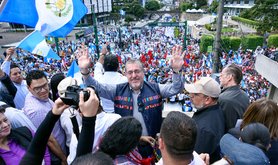
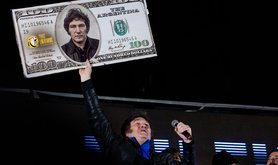
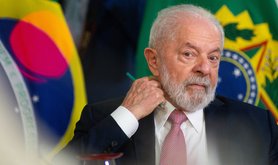
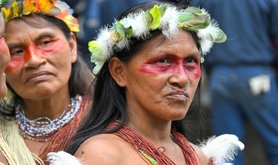
Comments
We encourage anyone to comment, please consult the oD commenting guidelines if you have any questions.